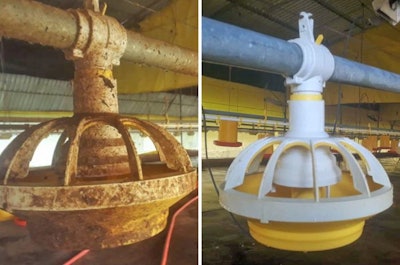
Alarms went off with the Newcastle disease outbreaks in the Dominican Republic. Without a doubt, poultry diseases do not stop attacking Latin American and world-wide poultry flocks.
In addition to the confusion over information on the mortality numbers in that country and the very pertinent clarification by the Dominican Poultry Association that mortality was actually lower and that it only occurred in small flocks, I would like to emphasize small producers and outbreak notifications.
A few months ago, I blogged about my doubts related to notifications in backyard flocks, their negative impact on international poultry trade and the image of the poultry industry. In addition to this, I also question small producers. But please, don't get me wrong. I don't question their rights to produce and sell poultry − I believe in free will and free trade − but the way they do it is many times outside the fundamental rules.
It is not superfluous to state the need to keep an eye on biosecurity again. As my good Venezuelan friend, Julio Ojeda, told me about this outbreak: “Definitely, something is not being done well; we talk about biosecurity more often, but washing is not done properly. We still insist on this.” This was said by someone who works in an environment full of great limitations, such as Venezuela. You have to go back to basics.
Washing is something so simple, yet so forgotten. Washing, adequate elimination of mortality, trucks entering and leaving, controlling movements of poultry products and birds, and so many other things are put aside. By not being fulfilled, the only thing that happens is that it returns as a boomerang at full speed, hitting us all.
Biosecurity is the responsibility of poultry producers, but it does not stop there. Authorities must give strict follow-ups and unrestricted support. And poultry associations must be supportive. We have to continue to insist on biosecurity.
What do you think?


















